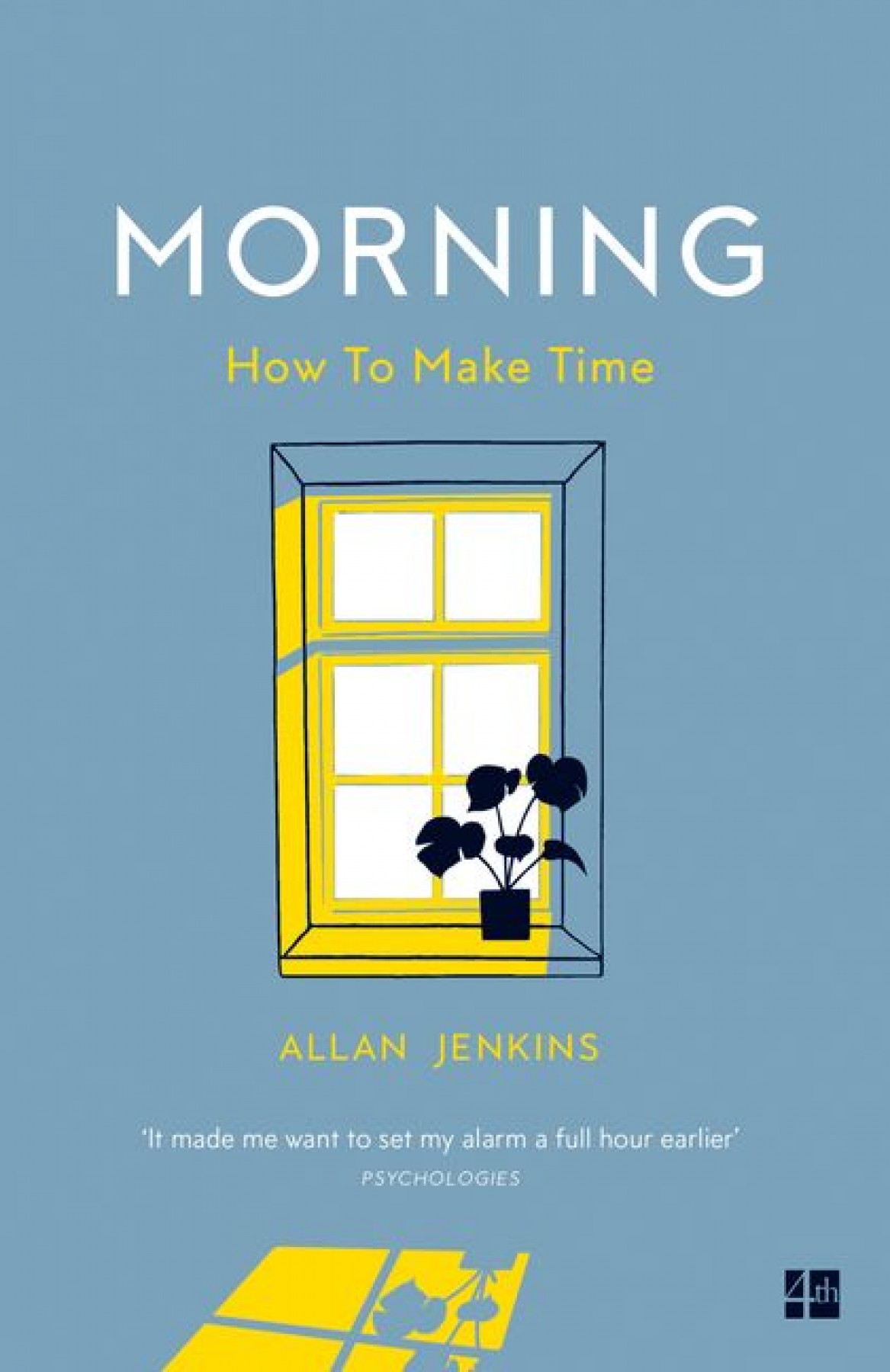My experiences of early mornings are never good; it’s either the kids waking me, alarms buzzing me into life so I can catch an early flight to an out-of-town meeting; or to fulfil that dumb promise made to a friend to pick them up from the first international flight of the day. After reading Allan Jenkin’s Morning: How to make time, I can see that waking early (without an alarm!) is a precious taonga. There’s no-one else around to bug you, you can be at peace with a steaming cup of tea, staring blankly at the world in its last throes of sleep. Now to put this tranquil state into practice. In my household, you have to tip-toe around in an effort not to awaken the kids, or disturb my sleep deprived partner. I want to experience what Allan Jenkins experiences – “to be extra alive in a way the near silence allows, sensitive to minute moments of change”. Jenkins awakens (early) each morning to windows flung open to the world no matter the season, and every noise or early morning activity around the neighbourhood is described as magical and inspiring. From the soft rain on plants to the noise of rubbish trucks, Jenkins celebrates them all.
The format of this slim volume is pretty simple, it begins with some explanations about why mornings are magical and some tips on how to become an early morning person. Don’t even begin to attempt this if you’re a night owl. You need to accept that you’ll be in the land of nod by 9pm most nights if you become converted. Jenkins says to start in spring as the days draw out. Winter is too staunch to begin this new way of being, although Jenkins admits it’s his favourite season. The book quickly falls into a rhythm. Each chapter is a new month – and diary entries for that month detail the minute yet important observations as the sun rises. The scenes I most wanted to relate to were when he was at his beloved allotment tending his garden. Rounding out each chapter is a question and answer session with fellow early morning converts. Each of them write elegant accounts of what the precious morning means to them. There’s plenty of gold in their views. Despite the author being London-based, the early morning observations still seemed relevant to New Zealand, minus the fox visitations which are surprisingly frequent in Jenkins’ world.
By the end of the book (which I read before sleep each night) I was in love with the concept of waking early and experiencing all that Allan Jenkins had experienced. A month on from finishing the book, I’m yet to do anything different, but the odd morning I’ve woken early, and listened to the world wake around me, I think I’m inching closer to slipping out of bed, sneaking to the farthest corner of the house, and just being present with the world as it awakens around me. As Jenkins says, “morning is a forgiving friend. Yours, too, if you want it.”
Reviewed by Mark Wilson, Senior Public Relations & Media Engagement Officer, MHF. Self-proclaimed night owl but admits to pangs of FOMO by not being awake early

